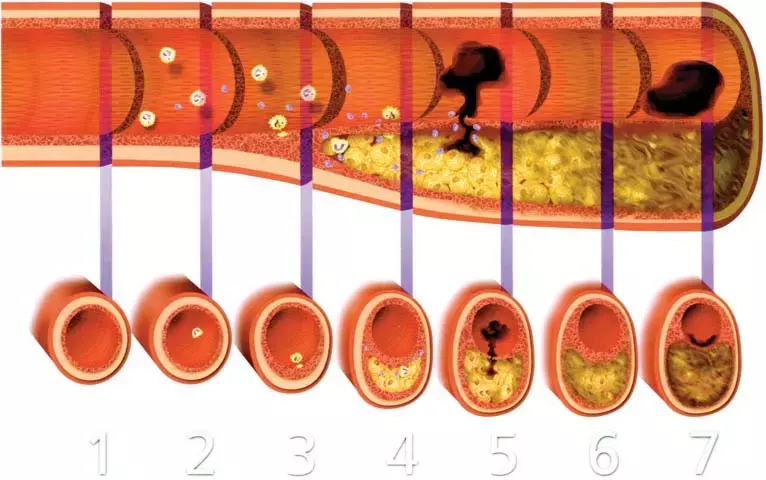- Home
- Medical news & Guidelines
- Anesthesiology
- Cardiology and CTVS
- Critical Care
- Dentistry
- Dermatology
- Diabetes and Endocrinology
- ENT
- Gastroenterology
- Medicine
- Nephrology
- Neurology
- Obstretics-Gynaecology
- Oncology
- Ophthalmology
- Orthopaedics
- Pediatrics-Neonatology
- Psychiatry
- Pulmonology
- Radiology
- Surgery
- Urology
- Laboratory Medicine
- Diet
- Nursing
- Paramedical
- Physiotherapy
- Health news
- Fact Check
- Bone Health Fact Check
- Brain Health Fact Check
- Cancer Related Fact Check
- Child Care Fact Check
- Dental and oral health fact check
- Diabetes and metabolic health fact check
- Diet and Nutrition Fact Check
- Eye and ENT Care Fact Check
- Fitness fact check
- Gut health fact check
- Heart health fact check
- Kidney health fact check
- Medical education fact check
- Men's health fact check
- Respiratory fact check
- Skin and hair care fact check
- Vaccine and Immunization fact check
- Women's health fact check
- AYUSH
- State News
- Andaman and Nicobar Islands
- Andhra Pradesh
- Arunachal Pradesh
- Assam
- Bihar
- Chandigarh
- Chattisgarh
- Dadra and Nagar Haveli
- Daman and Diu
- Delhi
- Goa
- Gujarat
- Haryana
- Himachal Pradesh
- Jammu & Kashmir
- Jharkhand
- Karnataka
- Kerala
- Ladakh
- Lakshadweep
- Madhya Pradesh
- Maharashtra
- Manipur
- Meghalaya
- Mizoram
- Nagaland
- Odisha
- Puducherry
- Punjab
- Rajasthan
- Sikkim
- Tamil Nadu
- Telangana
- Tripura
- Uttar Pradesh
- Uttrakhand
- West Bengal
- Medical Education
- Industry
Non-Dipper Hypertension, a Novel Parameter to Determine Progression of CAD

The progression of atherosclerosis occurs by either inflammation and thrombus accumulation or by progressive lipid accumulation. Although there are many causes of CAD progressions, some causes and results are still not fully explained.
In a recent study, researchers have found non-dipper hypertension as a novel parameter that is effective in CAD progression. The research has been published in the Turkish Journal of Medical Sciences on January 17, 2021.
Cardiovascular parameters such as blood pressure, heart rate, coronary tone change with circadian rhythm throughout the day. This circadian rhythm in blood pressure led to the creation of a new classification. In this classification made with ambulatory blood pressure monitoring, 10% or more decrease in blood pressure value measured at night compared to daytime value is defined as dipper hypertension and less than 10% decrease in non-dipper hypertension. Patients with non-dipper hypertension have been shown to have higher target organ damage and have a higher rate of cardiovascular mortality and morbidity. However, its effect on coronary artery disease progression is unknown. Therefore, Denİz ElÇİk and colleagues conducted a study to investigate the effect of non-dipper hypertension on the progression of coronary atherosclerosis.
Researchers included 186 patients who underwent coronary angiography twice between six months and three years. Coronary angiography was repeated on the admission day due to angina or positive exercise test and the researchers divided the patients into two groups according to presence and absence of progression.
Key findings of the study were:
• They found 58 of 186 patients with the progression of coronary artery disease.
• They also found 71 patients with non-dipper hypertensive.
• They noted that non-dipper hypertension, hypertension, diabetes mellitus, low-density lipoprotein, and total cholesterol were found to be effective in the progression of CAD.
• Among these parameters, they reported that non-dipper hypertension and hyperlipidemia were the most important independent risk factors.
The authors concluded, "Coronary artery disease is a progressive disease, and this progression depends on many reasons. In our study, we showed that non-dipper hypertension is a new parameter that is effective in CAD progression".
For further information:
doi: 10.3906/sag-2011-225.
Medical Dialogues Bureau consists of a team of passionate medical/scientific writers, led by doctors and healthcare researchers. Our team efforts to bring you updated and timely news about the important happenings of the medical and healthcare sector. Our editorial team can be reached at editorial@medicaldialogues.in.
Dr Kamal Kant Kohli-MBBS, DTCD- a chest specialist with more than 30 years of practice and a flair for writing clinical articles, Dr Kamal Kant Kohli joined Medical Dialogues as a Chief Editor of Medical News. Besides writing articles, as an editor, he proofreads and verifies all the medical content published on Medical Dialogues including those coming from journals, studies,medical conferences,guidelines etc. Email: drkohli@medicaldialogues.in. Contact no. 011-43720751


